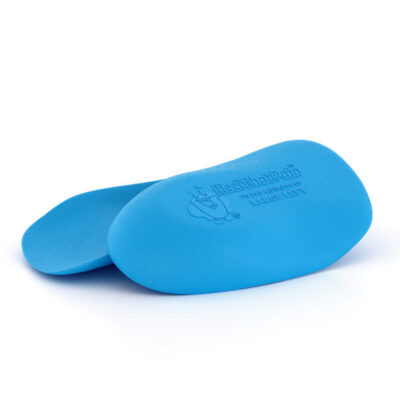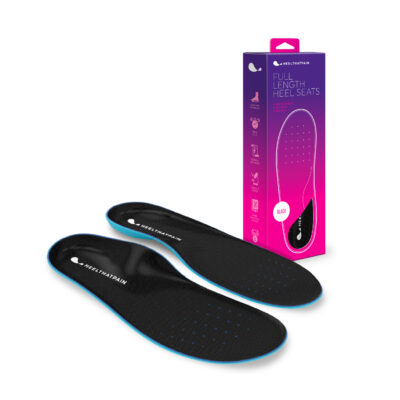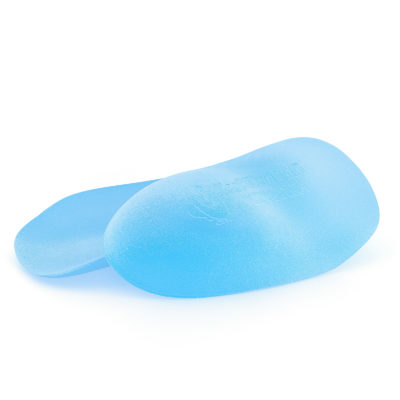 While the effects of Plantar Fasciitis revolve around your feet, many of the symptoms of this painful condition, including heel spurs, inflammation, and pain can be improved through your mouth.
While the effects of Plantar Fasciitis revolve around your feet, many of the symptoms of this painful condition, including heel spurs, inflammation, and pain can be improved through your mouth.
Dietary changes, including the addition of supplements and minerals, decreasing your intake of some types of foods, and increasing your intake of other types of foods, can significantly reduce inflammation and pain.
These dietary changes, combined with daily icing, stretching exercises, and the regular use of orthotic inserts, are some of the most important steps you can take to managing your Plantar Fasciitis.
Supplements and Minerals

Many vitamins and minerals that occur naturally in fruits, vegetables and grains can improve Plantar Fasciitis–but are found in such low doses that you’d have to eat a lot of them to gain noticeable benefits. To get the best results from these beneficial minerals, we recommend taking supplements for Plantar Fasciitis.
- Turmeric: This spice is used across the world to treat inflammation of all types, and Plantar Fasciitis is no exception. Some studies have even found that this spice is as effective as a pain reliever and anti-inflammatory as over-the-counter pain medications! You can take turmeric in capsule form.
- Bromelain: This incredible mineral is naturally found in pineapple (though in low enough doses that a supplement is recommended). It reduces inflammation and is considered as effective as ibuprofen at pain relief!
Read about more supplements and minerals that help Plantar Fasciitis.
Increase Anti-Inflammatory Foods
Foods that are high in calcium, magnesium, MSM (found in many fresh fruits, vegetables, and grains), and vitamin C can greatly reduce the effects of Plantar Fasciitis. Calcium helps by preventing the development of heel spurs (protrusions that can irritate the soft cushion of your heel), while MSM, magnesium, and vitamin C reduce inflammation.
The following foods are anti-inflammatory powerhouses.
- Spinach: Spinach is high in both vitamin C, calcium, magnesium, and MSM.
- Oranges: Oranges are high in calcium, MSM, and vitamin C.
- Pumpkin seeds: Pumpkin seeds are high in calcium and vitamin C
- White beans: White beans are high in calcium and magnesium
Read about more foods that help Plantar Fasciitis.
Decrease Inflammatory Foods

Just as some foods can decrease the pain and inflammation from Plantar Fasciitis, others can actually increase the amount of pain and inflammation you experience. Do your best to steer clear of the following foods, or limit their quantities. Keeping a journal of which foods you eat on a daily basis can help you recognize results and patterns more quickly and stay strong when cravings for some of these less healthy foods strike!
- Sugar: Sugar is a prime culprit for increasing irritation and inflammation in body tissues.
- Processed grains: Refined grains (for example, bleached white flour) can also increase inflammation.
- Saturated fat and trans fats: This is the type of fat you’ll find in many processed junk food and treats, as well as processed meats like hot dogs and pepperoni. Like sugar and processed grains, they’re prime culprits for inflammation.
Support Diet with Exercise and Orthotics
While the symptoms of Plantar Fasciitis are mostly localized to the feet, treatment involves the entire body, which is one of the reasons this condition can be so difficult to manage. While dietary changes can drastically affect the pain and inflammation caused by Plantar Fasciitis, taking a holistic approach to managing this condition will always yield the best results.
Incorporating simple, daily stretches into your routine, and making daily use of orthotics will give you the maximum benefit in pain relief and well-being–far more than any one solution on its own. Learn more about how these simple stretching exercises can make a world of difference in your pain level. Read more about how wearing Heel Seats or Fascia-Bar inserts on a daily basis can dramatically change your experience with Plantar Fasciitis.




My wife is having pain of plantar fasciitis to reduce weight she want to follow Keto/LCD diet plan and start regular gym workout she can follow these??
Hi Abhishek,
We have a few employees who follow the keto diet and love it. Keto is typically a very low inflammation diet, so it may benefit an inflammatory condition like plantar fasciitis. Ultimately it’s best to talk to your doctor before making a dramatic dietary change.
I have had chronic plantar fasciitis for over 2 years and have done the stretching, orthotics, night splints, icing etc. I recently started taking CBD oil to control the pain and the inflammation and I have been able to increase my mobility for the first time. I am also considering the amniotic fluid injection, but am unsure of the success rate on this. My podiatrist states that while there has not been a lot of people who have had it done, he has heard of a good success rate with little side effects, save for the initial 3 days of pain.
My mother is recently diagnosed with calcaneal spur and she is also a hypothyroid patient so wt kind of dietary management would be applicable
I have very bad heel pain how to treat by natural way n excercise
My 3 yr strong plantar fasciitis was cured by following an anti-inflammatory diet!! It was 50% better within two weeks and took only approx 2-3 months to completely disappear. 🙂
Hi Sooz, I’ve had PF for a year now and it’s driving me crazy. I’m wearing orthotics now and have been using a roller on my foot but no changes yet. When you say anti inflammatory diet, is there a book or guide you used, that I could get hold of?. You’ve given me some hope. Thank you, Tricia.
What specefic food have you consumed for curing F P? Pls. mention.
Hi, From the research I’ve done (which is alot) eating mostly or only Raw Fruits and Veggies is what your body needs in time of repair. These cleanse the body, neutralize the acid in your body and joints (arthritis), and provide real living energy that your body needs to thrive and function properly. Eating cooked plant matter, most grains, and animal products take away from your bodies energy and make it harder and sometimes even impossible for it to heal itself. Also, it’s important for your produce to be or close to organic as possible. I also recommend distilling your own water, you need water that isn’t polluted so it can cleanse your body and not pollute it. Store the water in glass jugs not plastic. (You can buy counter top distillers online. Some people add multi minerals back into the water once it’s distilled- research to see what’s the best choice for you.)
Most people have issues with their guts as well, bc of processed food, meds, antibiotic use, ect. Research how to heal your gut. (leaky gut is common) Get some good quality probiotics, I use Garden of Life RAW- they are refrigerated and have helped me greatly. If you want to heal your body you to need to do alot of research into what issues you have and find the root cause. Only you know your body and how you live your life. Only you can heal yourself. Don’t go for the first thing you find online either though. Research and compare info until you find a reliable source. I’ve found other countries do more studies than the US when it comes to natural medicine. The US mainly does studies to prove Man-made chemicals are medicine when nature is the only thing our organic bodies can truly thrive from. Nature is the only thing that can truly heal us.
There are a few well educated naturalpathic doctors on YouTube that share info. My favorite Doctor is Dr. Robert Morse, he understands the body and how it works. He has helped many overcome illnesses. From what I’ve seen, his first step to treatment is change of diet. He believes we were meant to be fruitovores, which consists of eating mostly fruits. He also uses essential oils in his practice. This past year I started using essential oils to support my body and have had great results with this as well. I recommend Young Living as they have higher standards than most other companies. I had tried other companies prior to YL but had a bad reaction to those oil. I later found out that the other company’s oils weren’t truly pure as labeled. I’ve never had an issue with Young Livings oils. YL has some of the highest standards as they produce, distill, in house test, and then third party test all their oils to make sure they are at the toppest quality they can be.
I hope some of this was helpful. Sorry it’s so long to read, there is so much to say. Just do research, alot of it, and you will find answers. Good luck!
What were the specifics of your diet
Hi I developed pain in my left heel since going on a detox /cleanse so dropped the xylitol and using Honey ever since. I read that sugar is the culprit but I’m using raw honey? Have done stretching exercises, use infrared lamp and bought gel heel cushions and still have pain during the day. What can you suggest?
I have had extremely painful and debilitating plantar fasciitis for a year and have tried icing, stretching etc to no avail, i have recently tried cutting a significant
(Not all, fruit and a little honey seems ok) amount of sugar from my diet and for the first time, after a week or two of trialling, have had long periods of being pain free, which feels so wonderful after a year of constant pain. There is definitely a connection there. Sugar causes an inflammatory response. I also found massaging from the site of pain, your whole foot and along your muscle close to your bone & calf, starts to undo the the tension and damage that is done by having your muscles so tightand walking oddly (limping) from this condition. Do the other leg too as its had to compensate for the other leg. I hope this helps. It feels like a miracle after so much pain.
Try the aip diet ( Anti inflammatorisk diet). It healed my planter fascilitis and my gut. The best diet ever for inflammation in your Body.